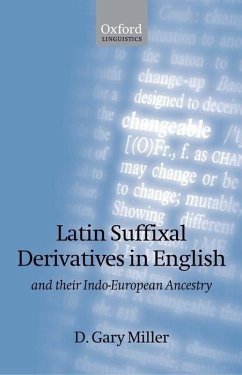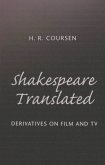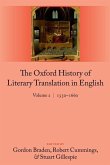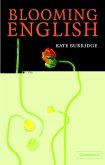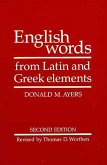This is the fullest account ever published of Latin suffixes in English. It explores the rich variety of English words formed by the addition of one or more Latin suffixes, such as -ial, -able, -ability, -ible, and -id. It traces the histories of over 3,000 words, revealing the range of derivational patterns in Indo-European, Latin, and English. It describes the different kinds of suffix, shows how they entered English via different channels at different times, and considers the
complexity of competition between native and borrowed forms. The author examines postclassical, medieval, and early modern Latin derivations, and demonstrates that Latin is still, and likely to remain, a productive source of English words. He traces the suffixes back to their Proto-Indo-European origins
and provides copious examples for every aspect of his discussion.
Professor Miller's innovative book makes an important contribution to the history of both English and Latin morphology and etymology, as well as to the history of suffixal derivation in Indo-European. It will interest scholars and students of comparative morphology, historical and comparative linguistics, etymology, and lexicography
Hinweis: Dieser Artikel kann nur an eine deutsche Lieferadresse ausgeliefert werden.
complexity of competition between native and borrowed forms. The author examines postclassical, medieval, and early modern Latin derivations, and demonstrates that Latin is still, and likely to remain, a productive source of English words. He traces the suffixes back to their Proto-Indo-European origins
and provides copious examples for every aspect of his discussion.
Professor Miller's innovative book makes an important contribution to the history of both English and Latin morphology and etymology, as well as to the history of suffixal derivation in Indo-European. It will interest scholars and students of comparative morphology, historical and comparative linguistics, etymology, and lexicography
Hinweis: Dieser Artikel kann nur an eine deutsche Lieferadresse ausgeliefert werden.

